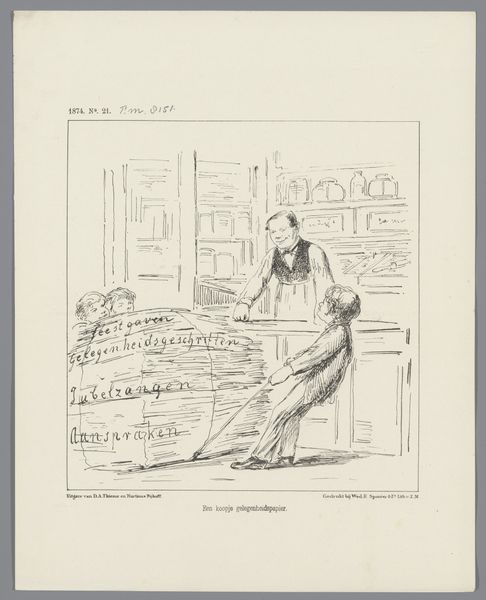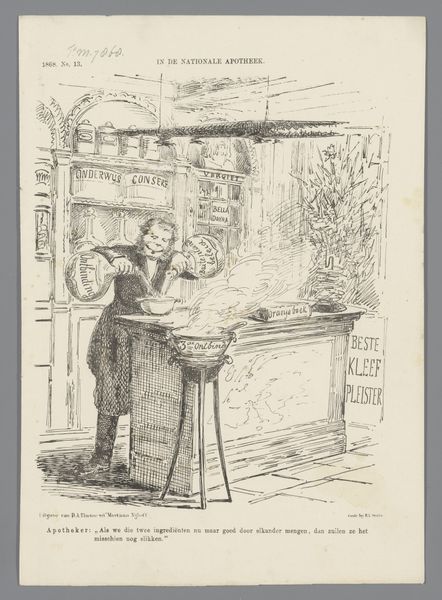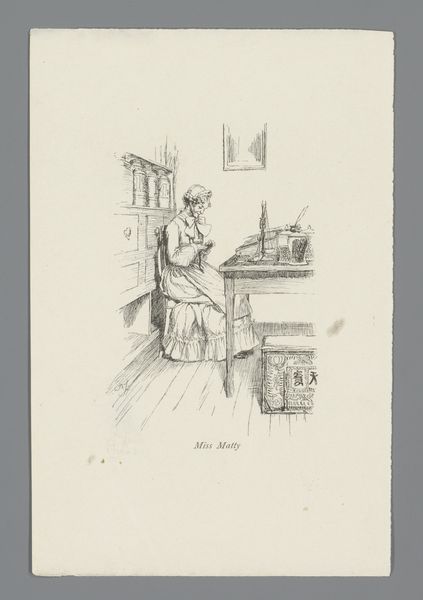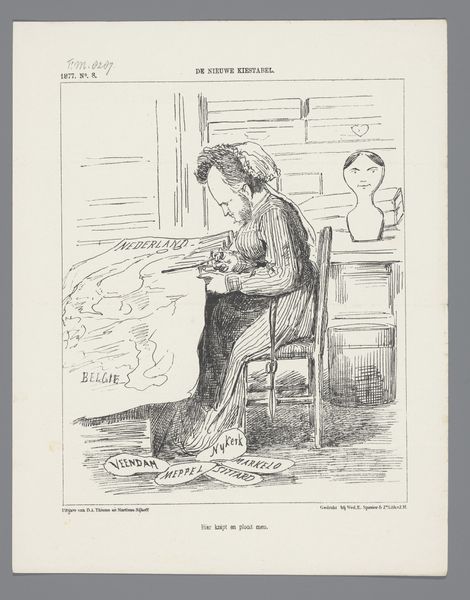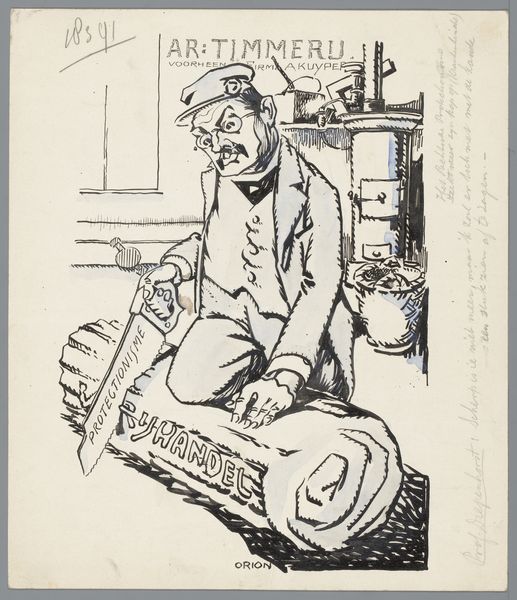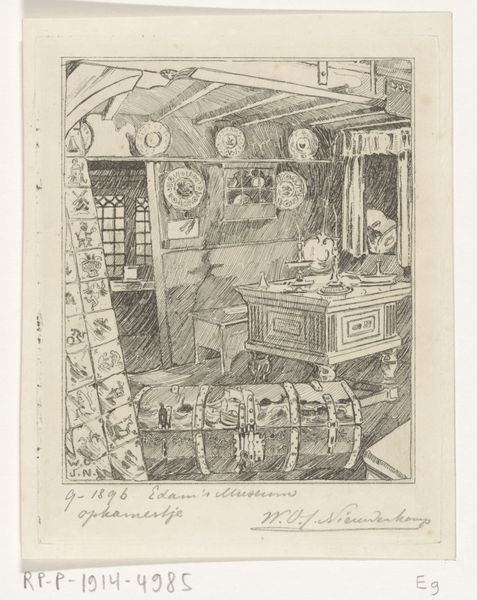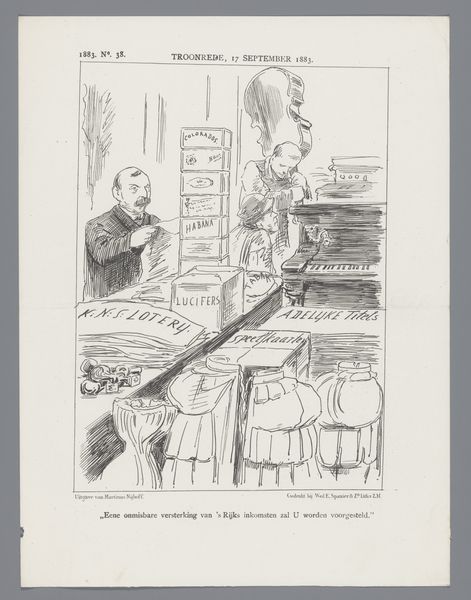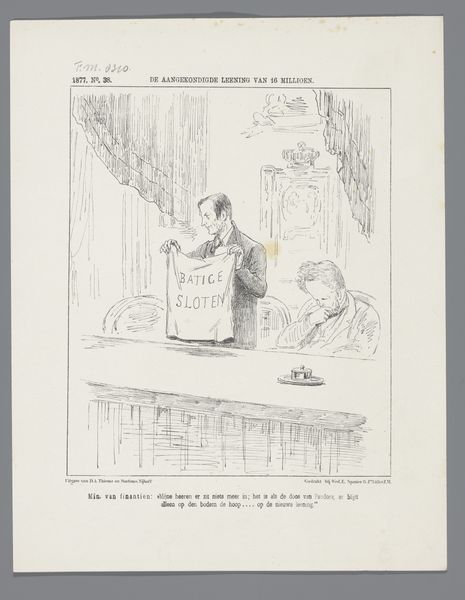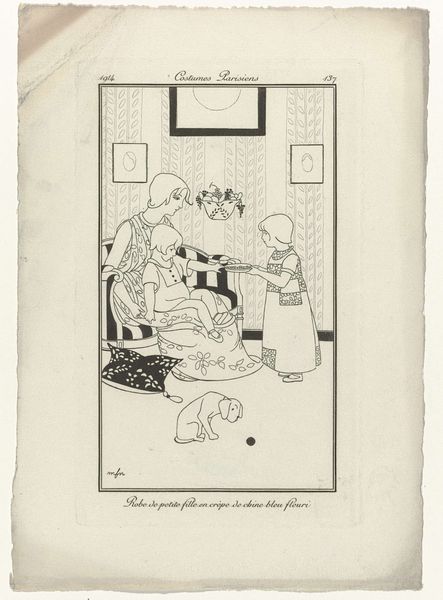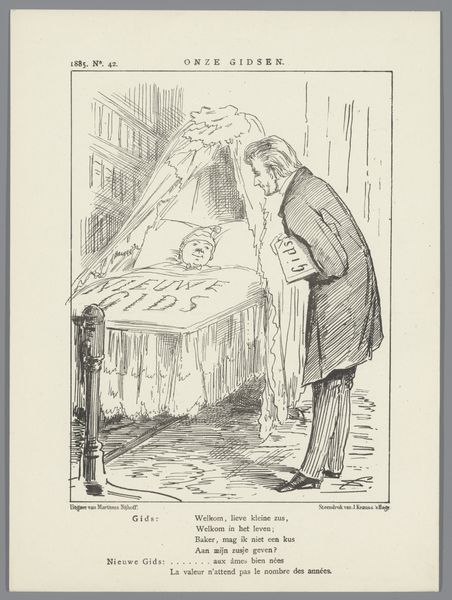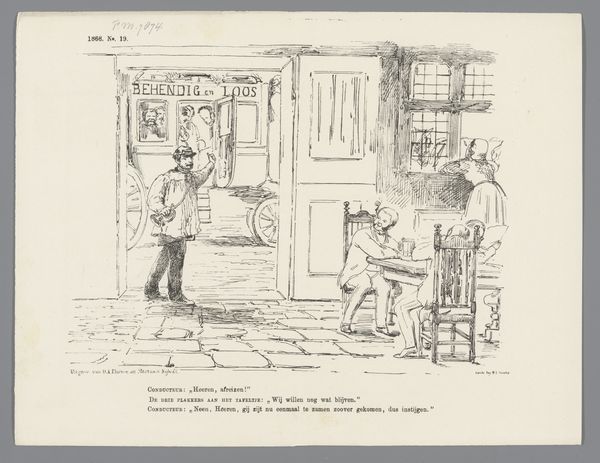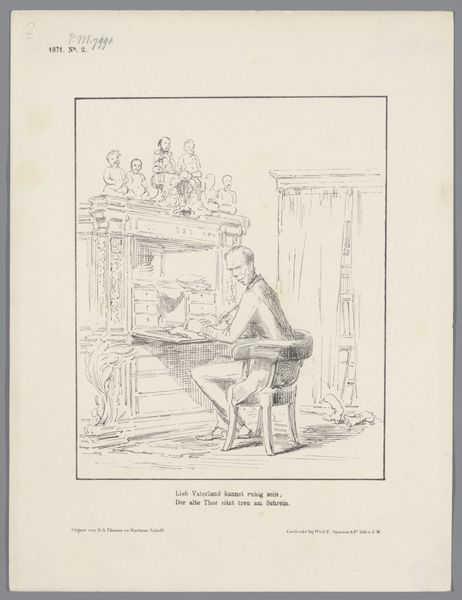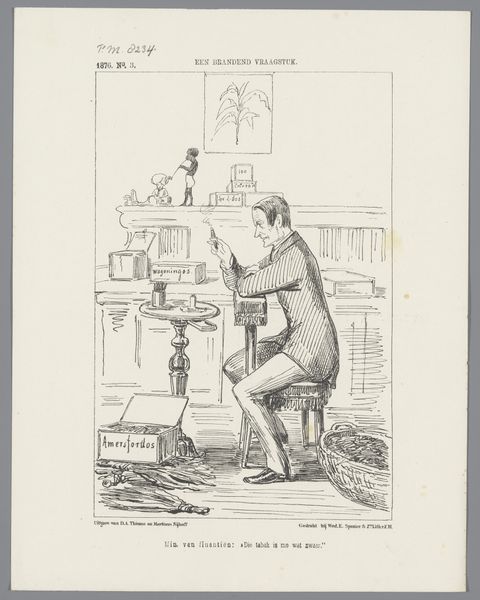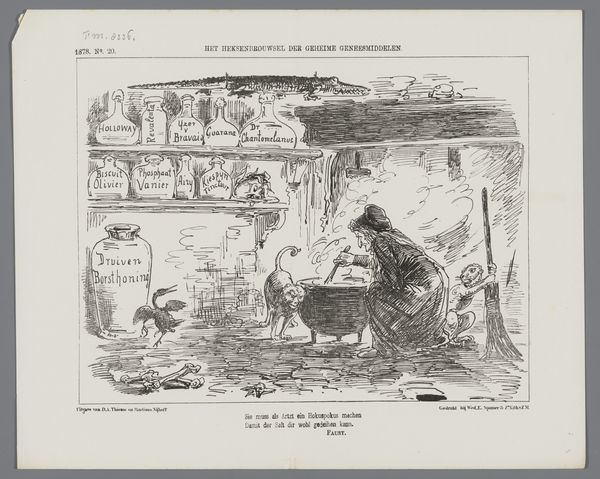
drawing, print, ink, pen
#
drawing
#
aged paper
#
quirky sketch
# print
#
caricature
#
sketch book
#
personal sketchbook
#
ink
#
sketchwork
#
pen-ink sketch
#
sketchbook drawing
#
pen
#
watercolour illustration
#
genre-painting
#
storyboard and sketchbook work
#
sketchbook art
Dimensions: height 275 mm, width 215 mm
Copyright: Rijks Museum: Open Domain
Editor: This pen and ink print, "Spotprent op Heemskerk als een keukenmeid" from 1885 by Johan Michael Schmidt Crans, presents a rather domestic scene, although it definitely strikes me as satirical. There's a woman in a kitchen, but the details feel exaggerated and loaded. How do you interpret this work? Curator: The "kitchen maid" here becomes a potent symbol. Notice the two animals, a dog carrying the label “Oorto” and a cat named “Marine.” Consider that animals in art can reflect our own base desires, mirroring society’s political tensions through something seemingly innocuous: a kitchen scene. Who are the represented “pets” loyal to? Editor: So you're saying the animals, Oorto and Marine, symbolize something beyond just being household pets? Are they representative of political factions or something along those lines? Curator: Precisely! Caricatures rely on cultural understanding. "Heemskerk" in the title – do you recognize that name? It is a loaded figure, but rendered in this context. Ask yourself, how does emasculating him to that of a humble kitchen maid relate to his public image and standing? Editor: That's a great point, framing a political figure in a domestic and, frankly, traditionally feminine role is pretty pointed for the time. This completely changes how I see the symbolism at play. It seems like the artist uses something as common as a kitchen scene to relay deeper political meanings. Curator: Symbols are potent because of what we collectively imbue in them over time. This work provides just such insight into that process!
Comments
No comments
Be the first to comment and join the conversation on the ultimate creative platform.
